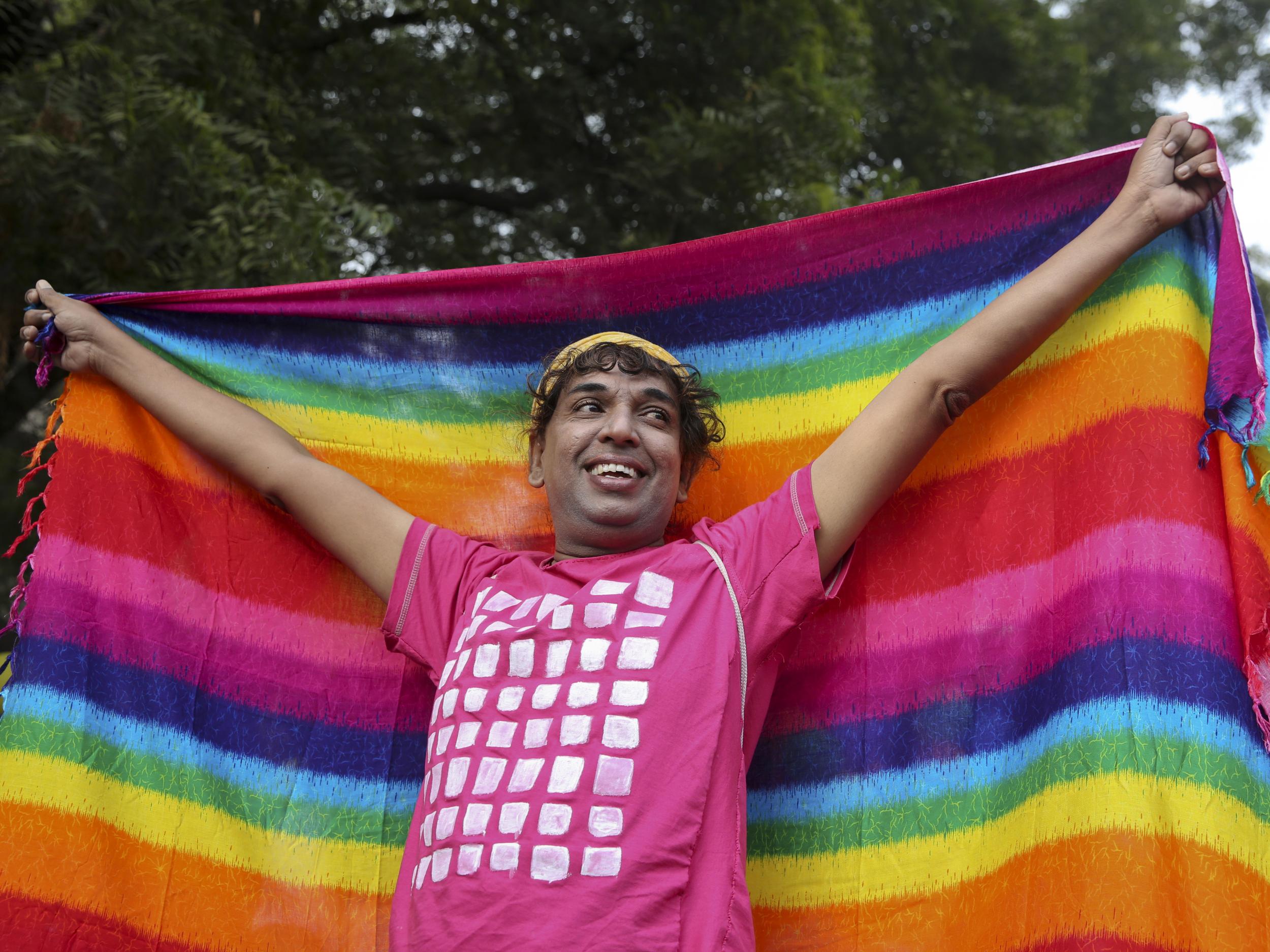Revellers stage Pride march in New Dehli to defy India’s criminalisation of gay sex
'We're fighting for the right of everybody in this country to live as an equal citizen, which means that everybody should be able to live their life the way they want to'

Hundreds of gay rights activists and supporters, many wearing colourful costumes and holding balloons, marched through India's capital on Sunday in celebration but also defiance in a nation that continues to outlaw homosexual acts.
As people chanted and marched to the beat of drums during New Delhi's 10th annual Queer Pride march, many said they were frustrated with the law but also hoped it would soon change.
Tish Anand wore a wig that he said was inspired by the Disney Channel character Hannah Montana. He said he would sing and dance, as long as he didn't trip over his heels, but was frustrated with authorities.
“I don't understand why they criminalised love,” he said. “Duh. They are jerks.”
Manak Matiyani, one of the organisers, said his wealth and education allowed him to live as openly gay but it was much harder for those with less privilege.
“We're fighting for the right of everybody in this country to live as an equal citizen, which means that everybody should be able to live their life the way they want to,” he said.
Indian law makes gay sex punishable by up to 10 years in prison.
Matiyani said the law is often used by the police and community members to threaten people or extort money from them.
In 2009, the New Delhi High Court declared the law unconstitutional. But that was overturned four years later when India's Supreme Court decided it should be a decision for the parliament, not the judiciary. Last year, the top court said it would reconsider its decision.
Over the past decade, homosexuals have gained some degree of acceptance in India, especially in big cities. Many bars have gay nights, and some high-profile Bollywood films have dealt with gay issues.
But being gay is still seen as shameful in most of the country, and many homosexuals remain closeted.
AP
Join our commenting forum
Join thought-provoking conversations, follow other Independent readers and see their replies
Comments
Bookmark popover
Removed from bookmarks